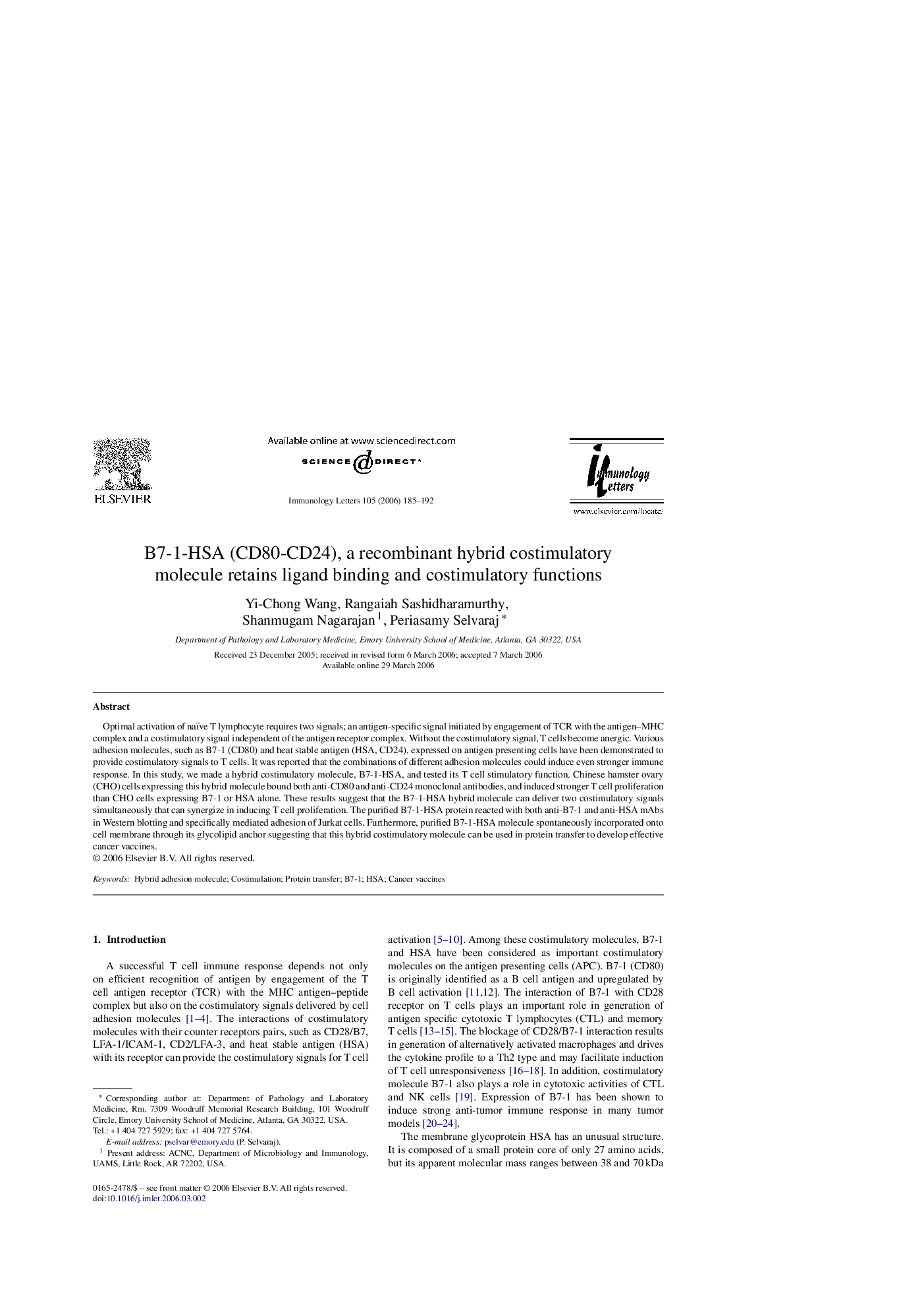| Article ID | Journal | Published Year | Pages | File Type |
|---|---|---|---|---|
| 3356447 | Immunology Letters | 2006 | 8 Pages |
Optimal activation of naïve T lymphocyte requires two signals; an antigen-specific signal initiated by engagement of TCR with the antigen–MHC complex and a costimulatory signal independent of the antigen receptor complex. Without the costimulatory signal, T cells become anergic. Various adhesion molecules, such as B7-1 (CD80) and heat stable antigen (HSA, CD24), expressed on antigen presenting cells have been demonstrated to provide costimulatory signals to T cells. It was reported that the combinations of different adhesion molecules could induce even stronger immune response. In this study, we made a hybrid costimulatory molecule, B7-1-HSA, and tested its T cell stimulatory function. Chinese hamster ovary (CHO) cells expressing this hybrid molecule bound both anti-CD80 and anti-CD24 monoclonal antibodies, and induced stronger T cell proliferation than CHO cells expressing B7-1 or HSA alone. These results suggest that the B7-1-HSA hybrid molecule can deliver two costimulatory signals simultaneously that can synergize in inducing T cell proliferation. The purified B7-1-HSA protein reacted with both anti-B7-1 and anti-HSA mAbs in Western blotting and specifically mediated adhesion of Jurkat cells. Furthermore, purified B7-1-HSA molecule spontaneously incorporated onto cell membrane through its glycolipid anchor suggesting that this hybrid costimulatory molecule can be used in protein transfer to develop effective cancer vaccines.
